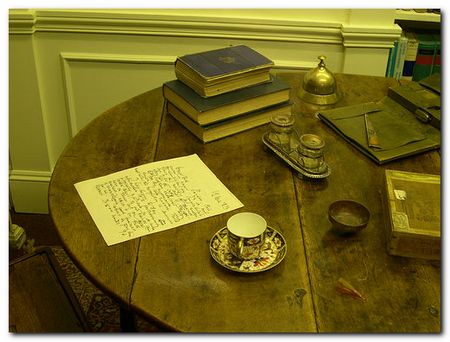sample from HTML program and PDF book
1. Jargon is ‘the technical language of a profession or group’. The implication of this definition is that their language may not be understood by people outside the group.
2. For example, when solicitors use terms such as ‘probate’, ‘conveyance’, and ‘leasehold’, they are using the jargon of their profession, which is usually only understood by other solicitors. Similar examples could be given for doctors, engineers, and even bookbinders.
3. There is nothing wrong when jargon is used amongst members of the same group. It often functions as shorthand, which eliminates the need for lengthy explanations. However, when you are communicating with people outside a group, its use should be minimised.
4. The term jargon in its most negative sense describes the use of technical or obscure terms when addressing a general audience. For instance, a letter from the Inland Revenue to an ordinary member of the public which contains the following sentence is an example of bad manners (and poor communication):
The basis of assessment for Schedule D Case I and II, other than commencement and cessation, is what is termed a previous year basis.
Some steps have been taken to eliminate this occurrence in public documents, but there is still a long way to go.
5. Academic discussion can have its own jargon too, depending upon the subject in question. Terms such as ‘hegemony’ (political philosophy) ‘discourse analysis’ (linguistics) and ‘objective correlative’ (literary studies) would not be recognisable by an everyday reader, though they might be understood by someone studying the same subject.
6. Whatever the jargon of your own discipline, it should be used with precision, accuracy, and above all restraint. Only use the specialised terms of your subject if you are quite sure of their meaning.
7. Never use jargon to show off or ‘impress’ your reader. It is likely to create the opposite effect. Similarly, do not take half-understood jargon from one discipline and import it into another.
8. Take the trouble to learn the meanings of these specialised terms within the context of your subject. A word might have a particular meaning when used within a subject discipline which it does not have in general usage.
9. Do not use a jargon term where perfectly ordinary terms will be just as effective. There is not much virtue in using terms such as ‘aerated beverages’ instead of ‘fizzy drinks’. These simply cause disruptions in tone and create a weak style.
10. Here is an even more pretentious example, spotted recently.
‘Moisturising cleansing bar’ [in other words – ‘soap’]
© Roy Johnson 2003
Buy Writing Essays — eBook in PDF format
Buy Writing Essays 3.0 — eBook in HTML format
More on writing essays
More on How-To
More on writing skills


 Studying Fiction
Studying Fiction
 Lord Jim
Lord Jim Heart of Darkness
Heart of Darkness 1. Writer’s block is much more common than most people imagine. But it can be overcome. Don’t imagine that you should be able to write impeccably at your first attempt. Most successful writers make several drafts of their work. They edit what they write, correct mistakes, make additions and deletions, and generally re-write extensively. Writing fluently and clearly is an advanced skill.
1. Writer’s block is much more common than most people imagine. But it can be overcome. Don’t imagine that you should be able to write impeccably at your first attempt. Most successful writers make several drafts of their work. They edit what they write, correct mistakes, make additions and deletions, and generally re-write extensively. Writing fluently and clearly is an advanced skill.

